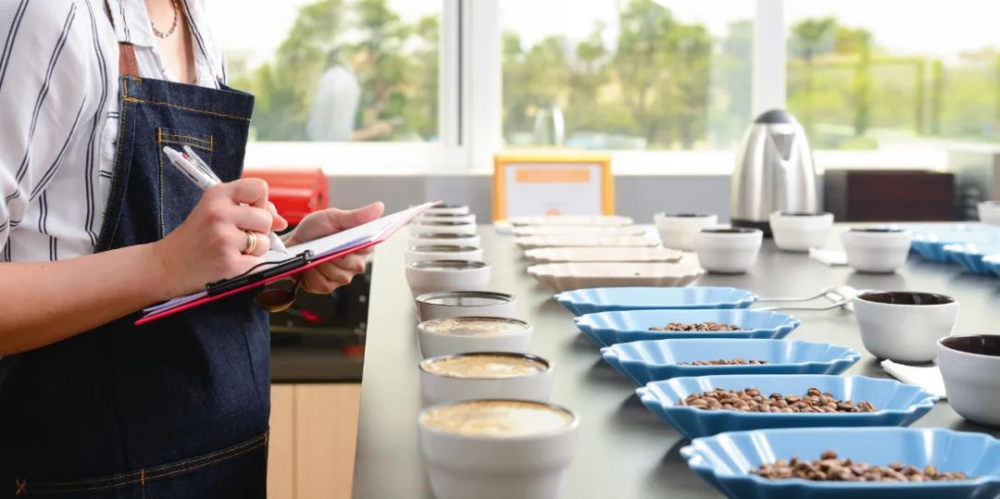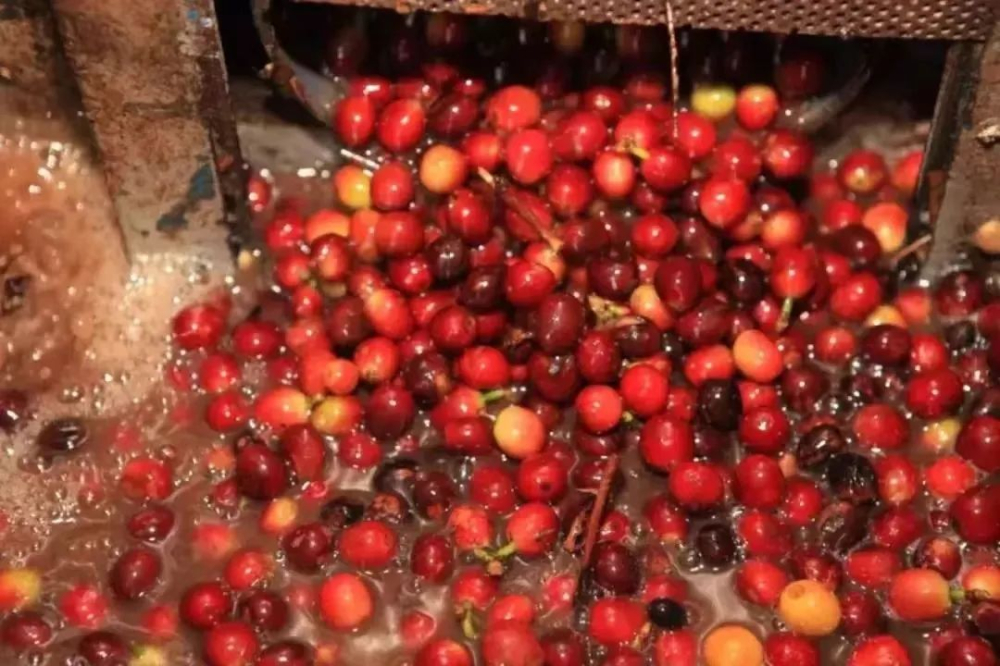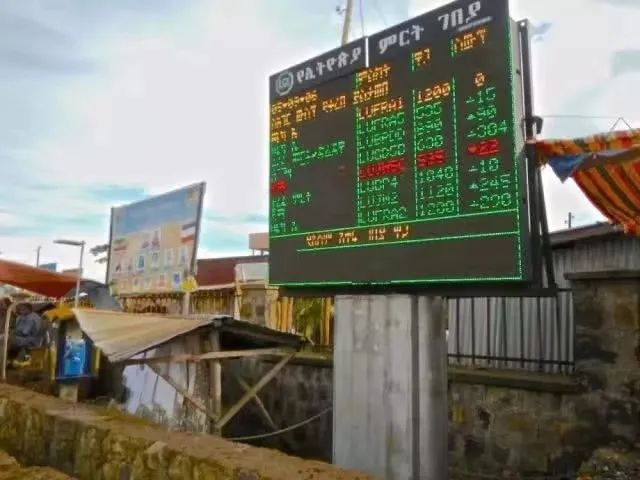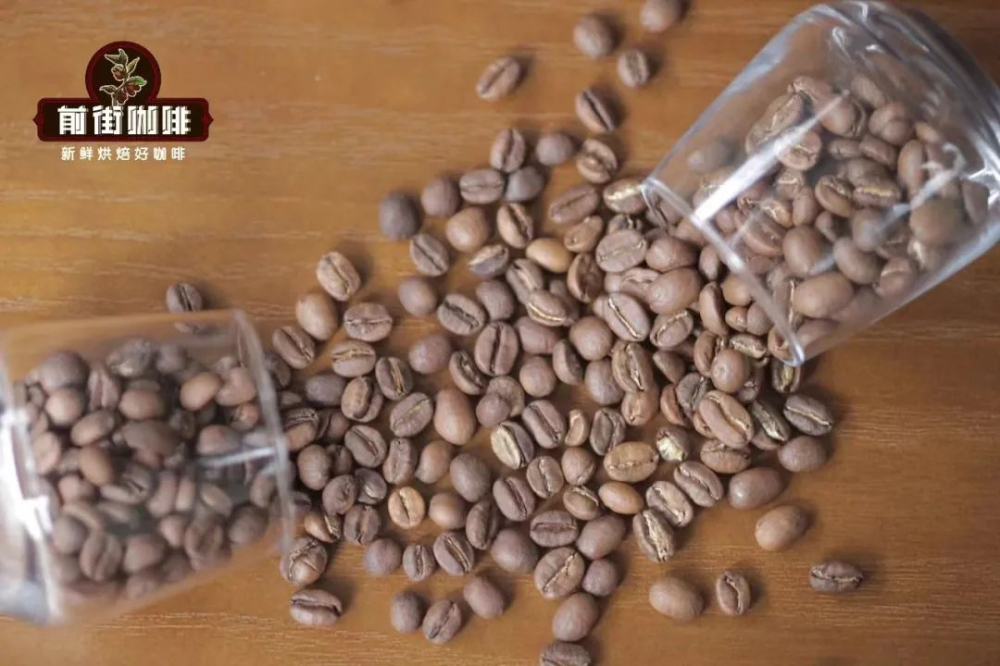What is the difference between boutique coffee beans and commercial coffee beans? What does boutique coffee beans mean?
High-quality coffee beans and commercial coffee beans, many people will recognize the difference in quality, high-quality beans must be better than commercial beans, the price is naturally higher, at least the market has been educating consumers.
This perception should be based on the statement of the boutique coffee association SCA, through their cup test system, those with a cup test score of more than 80 points are fine coffee beans and those with less than 80 points are commercial coffee beans. But in fact, except for competitions or voluntary samples, SCA will not grade beans. What we call SCA scoring is actually the scoring method taught by SCA during training, and the scores given by students according to this method. It seems that this distinction method of SCA still has great limitations so far.

Maybe go back to looking for clues when the concept of boutique coffee was put forward. At that time, coffee was already a commodity second only to crude oil. Type C coffee futures on the New York Coffee Exchange were priced with Arabica beans from 19 countries, of which Brazilian coffee had the greatest impact on futures prices. Boutique coffee, to be exact, the word "Specialty Coffee" was proposed by Ms. Erna Knutsen in 1978 at the International Conference on Coffee in France. That's what she said at that time, "Special geographic microclimates produce beans with unique flavor profiles."Coffee beans with local flavor have been cultivated under the unique micro-climate and geographical conditions of the producing area." The word "Specialty" means specialty, and "Specialty Coffee" means "specialty coffee", which means that the coffee produced in each small place should have the characteristic flavor of the region. It's just that when it was translated into Chinese, it became "boutique coffee", and the meaning changed.

This view was put forward mainly because there was a market index pricing (futures price) for coffee at that time, and for farmers, yield was more important than quality. And every large producing area will mix all the coffee beans produced by farmers, and the flavor is basically very simple, even if there is coffee of good quality. The proposal of high-quality coffee is to separate the coffee beans of good quality and buy them at a price higher than the market price, so as to improve the quality of coffee beans. After getting rid of the bad coffee beans, it can really reflect the flavor of the local producing area. That is, we often say that the producing area flavor of Yejiaxuefei coffee beans is citrus and tea rhyme. The flavor of blue mountain coffee beans is balanced and mellow. In order to distinguish between the two, commodity beans are also called "commercial coffee beans". But in fact, the definition of boutique coffee beans and commercial coffee beans is very vague, and the difference is not as far as people think. Take Ethiopia as an example, the so-called G1 and G2, according to the score, seem to be two different grades, while in Ethiopia, both are classified as Q1 for export.

Of course, in some well-known beans that can stretch the distance, it will be very different from other beans in flavor. On the level of cooked beans, the quality of coffee beans has been greatly improved, and it also has the flavor of producing areas. From the quality, flavor characteristics of producing areas and the definition of Specialty Coffee, it can also be called high-quality beans. This is actually caused by the flavor of the producing area, while in the same region, the same variety, the same altitude, the same way of treatment, the quality is quite similar. Some friends will think that "boutique beans must sell better than commercial beans." For example, many friends have doubts about Ethiopia's G1 coffee beans. When they see the uneven size of a bag of beans, they think that they are mixed with other coffee beans, or pretend to be G1 with low-grade coffee beans. This is also a big misunderstanding. The grade of coffee is provided to raw bean merchants for bargaining. Buying raw materials of poor grade means that you need to spend more labor costs to select to meet the requirements of the supply market. Whether high-grade or low-grade beans, after layers of selection, the quality that appears in the market has also reached a very close level.

So, if you use low-grade beans during baking, it may mean that you need to spend more time picking them, in which case you would prefer to choose high-grade beans directly. On the other hand, coffee is the economic pillar of various producing countries, and it is not common for low-grade beans to be used for export. Different producing areas have their own hierarchical system. Some countries use hardness, some countries use size, and Ethiopia has the number of defective beans. In fact, Ethiopia beans, no matter how high grade, size is a normal phenomenon, because Ethiopia's raw beans are classified by defect rate, there is no requirement for the size of beans. Moreover, because there are so many varieties of Ethiopian coffee, hundreds of coffee varieties are often mixed in a forest, and the local name is "native species." since they are different varieties, it is normal for the fruits to be large and small. Therefore, there is no unified standard for judging whether beans are good or bad, and the grade of coffee is more based on each batch of beans, and the grade of coffee is more only a reference for raw bean merchants when purchasing raw materials. Beans considered good or bad in the market, its price in the place of origin is not as huge as people think.

Finally, if you are still obsessed with the concept of boutique beans and commercial beans, then when buying coffee beans, you can buy coffee beans whose information can be traced back to the manor or small producing areas.
Important Notice :
前街咖啡 FrontStreet Coffee has moved to new addredd:
FrontStreet Coffee Address: 315,Donghua East Road,GuangZhou
Tel:020 38364473
- Prev

Is the espresso brewed from the mocha pot? The difference between coffee maker and mocha pot for making coffee
Recently, many friends in Qianjie are going to talk about mocha pots. In fact, Qianjie's article a few months ago has already explained what should be said, including the most basic cooking operation and details. Interested friends can review it (the first link, the second supplementary link). This time, Qianjie needs to add the knowledge about the mocha pot.
- Next

What if I can't get the flavor of the coffee? What is the sense of smell behind the nose? Is the flavor of hand-brewed coffee smelled?
"Why can't I get the flavor of coffee?" This is the most common question I have ever heard about flavor in front of the street. Of course, Qianjie also shared a lot of ways to taste the coffee. But this article is to explore whether the flavor of coffee is drunk or smelled. According to the usual expression, the flavor of coffee is
Related
- Beginners will see the "Coffee pull flower" guide!
- What is the difference between ice blog purified milk and ordinary milk coffee?
- Why is the Philippines the largest producer of crops in Liberia?
- For coffee extraction, should the fine powder be retained?
- How does extracted espresso fill pressed powder? How much strength does it take to press the powder?
- How to make jasmine cold extract coffee? Is the jasmine + latte good?
- Will this little toy really make the coffee taste better? How does Lily Drip affect coffee extraction?
- Will the action of slapping the filter cup also affect coffee extraction?
- What's the difference between powder-to-water ratio and powder-to-liquid ratio?
- What is the Ethiopian local species? What does it have to do with Heirloom native species?

